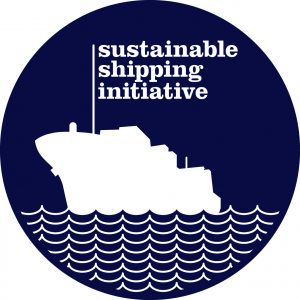 Shipping’s failure to agree process for an emissions reduction framework at MEPC 69 risks industry’s reputation
Shipping’s failure to agree process for an emissions reduction framework at MEPC 69 risks industry’s reputation
Despite some progress, the lack of a definitive outcome puts significant pressure on MEPC 70 in October 2016, and increases the threat of reduction targets being taken out of the shipping industry’s hands
London – 25 April 2016 – The Sustainable Shipping Initiative (“SSI”), a pioneering coalition of companies from across the global shipping industry, believes that the International Maritime Organisation’s (IMO) recent Marine Environmental Protection Committee meeting (MEPC 69) has failed to achieve the required minimum outcome.
Before MEPC 69, the SSI, as well as many other member states and industry bodies, called for an agreement on a process that would lead to the setting of an ambitious but realistic framework, that would see the shipping industry contribute to reducing its greenhouse gas (GHG) emissions in line with the targets agreed at the UNFCCC COP 21 meeting in Paris in 2015.
While the issue of GHG emissions reduction will continue at MEPC 70 in October 2016, the SSI believes the lack of action increases the perception of shipping as an industry that is not willing to contribute to global reduction targets. This threatens the shipping industry’s reputation, and increases the chance of reduction targets being mandated outside of the regulatory framework of the IMO.
Alastair Fischbacher, CEO, the Sustainable Shipping Initiative, said:
“While some progress has been made, the failure to agree a process for emissions reduction puts significant pressure on generating a positive outcome at MEPC 70 in October. The shipping industry cannot go to COP 22 in Morocco without this. Not only will it damage the industry’s reputation, it also runs the risk of external regulators taking the matter into their own hands and circumnavigating the IMO, which no-one in the industry wants to see.”
The committee has agreed to table a further debate at MEPC 70, exploring whether it will be possible to develop a work plan that will help to identify its long-term objectives; while it keeps the debate on the agenda it is far short of the minimum progress needed. The most positive outcome at MEPC 69 was the agreement on the implementation of a mandatory data collection system, and good progress on the agreement of the specification of this system. However results will not be available for a number of years yet, potentially delaying the action required and increasing the stringency of measures that will be needed.
Alastair Fischbacher continued:
“Although the debate at MEPC 69 has taken a step forward, it is not substantive enough and falls short of both external expectations and even internal ambition from a large number of the members. A number of parties, including two of the three biggest flag registries, were supportive of the IMO developing a framework for emissions reduction as soon as possible. But this was not enough to counter some strong opposition to proposals and in some cases to any further work.”
Fischbacher concluded:
“The IMO’s 2014 GHG study was conclusive that on a business as usual scenario, shipping will increase its GHG emissions output by up to 250% or nearly 3 billion tonnes by 2050. We must move on from the debate about collecting data and the shipping industry’s impact on the environment, and using this as a reason to delay action. While developing a robust data collection is an important part, the IMO must actually demonstrate commitment to drive progressive change and take responsibility with the rest of the world in meeting global warming reduction targets.”
About the Sustainable Shipping Initiative
The Sustainable Shipping Initiative (SSI) is an ambitious coalition of shipping leaders from around the world that is taking practical steps to tackle some of the sector’s greatest opportunities and challenges. The group is working to achieve a vision of an industry in which sustainability equals success.
It is the first time the shipping industry has joined forces on such a cooperative global scale to tackle big sustainability issues. The ultimate goal is to show that collaborative action is possible, and to mobilise support across the industry, demonstrating that shipping can contribute to – and thrive in – a sustainable future.
The cross-industry SSI has members from a number of companies representing ship owners and charterers, shipbuilders, engineers and service providers, banking and classification societies. Member companies include ABN AMRO, AkzoNobel, American Bureau of Shipping, Bunge, Cargill, China Navigation Company, , IMC, Lloyd’s Register, Maersk Line, U-Ming Marine Transport Corporation and Wärtsilä.
In September 2013 the SSI became an independent charity. The SSI was initially facilitated by global sustainability non-profit Forum for the Future in conjunction with WWF, the global conservation NGO. Forum for the Future and WWF remain as SSI NGO members.





